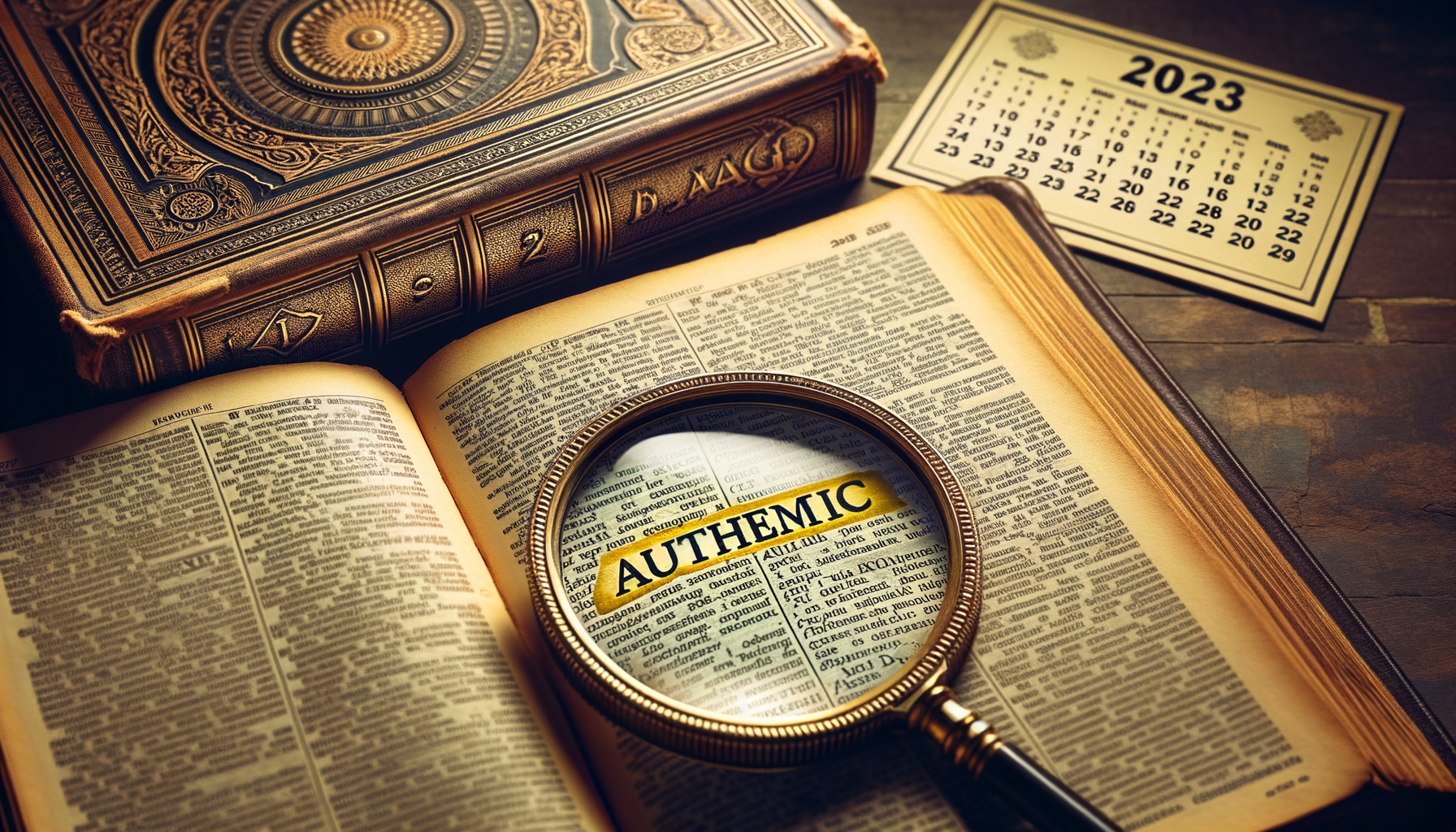
Unveiling “Authentic”: Merriam-Webster’s Word of the Year for 2023
In an era where technology has blurred the lines between reality and simulation, the quest for authenticity has never been more pronounced. Amidst the digital noise, “authentic” has emerged as a beacon of integrity, earning its rightful place as Merriam-Webster’s Word of the Year for 2023. This blog post dives into the significance of this choice and its implications in our AI-driven world.
The Rise of Authenticity in a Deepfake Era
As artificial intelligence continues to evolve, deepfakes – synthetic media in which a person’s likeness is replaced with someone else’s – have become increasingly sophisticated. The potential for misuse is vast, from political misinformation to personal defamation. It’s no wonder that individuals and institutions alike are rallying around the concept of authenticity.
Authenticity represents truthfulness, originality, and genuineness – qualities that seem to be in short supply in the realm of deepfakes. As disingenuity looms large, the public’s desire for the real and the reliable has surged, propelling “authentic” to the forefront of our collective consciousness.
Embracing Authenticity in Daily Life
While the digital world grapples with the challenges of AI and deepfakes, consumers are increasingly seeking out products and experiences that promise authenticity. This trend has been reflected in everything from marketing campaigns to product design, as brands strive to connect with customers on a more genuine level.
For those looking to infuse their lives with a touch of authenticity, literature offers a timeless escape. Consider picking up a copy of “The Authenticity Project” by Clare Pooley, a novel that explores the truth and fiction in our everyday lives. You can find it on Amazon by following this link: The Authenticity Project.
Technology’s Role in Preserving Authenticity
As much as technology has challenged authenticity, it also provides solutions to safeguard it. Blockchain technology, for example, offers a way to create tamper-proof records, ensuring the authenticity of everything from artworks to academic credentials. AI itself can be harnessed to detect deepfakes and authenticate media, acting as a guardian of truth in the digital age.
For tech enthusiasts interested in blockchain, “The Basics of Bitcoins and Blockchains” by Antony Lewis provides an excellent introduction to the technology and its applications. Find it on Amazon here: The Basics of Bitcoins and Blockchains.
Conclusion: The Enduring Value of Authenticity
The selection of “authentic” as the word of the year is more than a linguistic trend; it’s a reflection of our collective yearning for something real amidst a sea of digital facades. As we navigate the complexities of the modern world, embracing authenticity in our choices, interactions, and beliefs becomes a powerful act of resistance against the tide of disinformation.
Let’s take Merriam-Webster’s cue to celebrate and cultivate authenticity in our lives, recognizing its critical role in maintaining trust and integrity in society. In a time when AI and deepfakes challenge our perception of reality, “authentic” stands out as a testament to the human spirit’s unyielding search for the truth.
As we continue to explore the implications of emerging technologies, remember the importance of remaining authentic to ourselves and the world around us. After all, in a year dominated by artificiality, authenticity has claimed its crown.